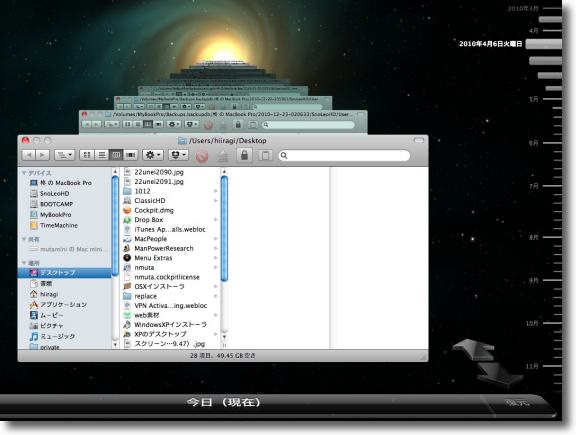
On the one hand, it's be nice to pick your own backup schedule.

This is one of those areas where Apple may or may not turn its attention as Leopard matures. The benefit is finer control over when and how your backups run, from the hourly default up to once every 12 (or immediately, if you prefer).
Timemachinescheduler install#
TimeMachineScheduler actually replaces the launchd-based agent used by Time Machine with one of its own, so you'll need to be an administrator to install and use it. Stefan Klieme says, "Enough!" He has released TimeMachineScheduler, a simple utility that adds a sliding scale to Time Machine's scheduling. As the clock marches inexorably on, you can be sure that once every 60 minutes, your Mac's hard drive will stutter to life (along with any CDs you may happen to have in the drive), a new volume will present itself in the new Finder sidebar, and there goes the neighborhood. One downside is that there's no way to alter Time Machine's schedule. The ability to painlessly restore files from multiple backups-granted, the definition of "painless" varies directly as the speed of your networked backup drive if you chose to go that route-means there's no more excuse for not backing up.

Note that there is a large Back Up Now button in the top right corner of the TimeMachineScheduler window.Select a start time and an end time, and no backups will run during that time. Do you want to skip backups for a specific period of time? That’s what the following line in the Scheduler is for.You can also select to have a backup run once the scheduler loads check the “Run backup on load” box to make this happen. To change the default backup interval of one hour, slide the Backup interval slider to the appropriate line between 1 and 12, then click the Apply button.Note that you may see a red temporary error message on the TimeMachineScheduler screen. If it is not loaded, click the Install button. On the General tab, make sure the programmer is “installed and loaded” and the indicator dot is green.Start TimeMachineScheduler from your Applications folder.Please note that you will be prompted for your administrator password. To install the application, drag the TimeMachineScheduler icon to the alias in the Applications folder.

Double-click on it to mount and open the disk image file.
Timemachinescheduler download#

Timemachinescheduler how to#
How to Customize Time Machine Backup Schedule for MAC Before using TimeMachineEditor, disable automatic backups in Time Machine preferences by unchecking Automatic Backup. Whatever the reason, we’ll show you how to adjust your backup schedule from the terminal or from the easy-to-use TimeMachineScheduler preferences window. The easiest way to avoid this is to adjust your backup schedule. While this is fine for backup purposes, it can be a hassle if it takes up CPU cycles and disk I/O from other tasks. By default, it backs up all changes every hour when a drive is online or in range. Time Machine can be a bit aggressive at times, for example. Scheduling Time Machine backups on a Mac is useful for many reasons, whether it’s for administrative or management purposes, or simply because you want to change the frequency of your backups. There’s no way around having backups of your Mac, and advanced users can benefit from scheduling Time Machine backups. Check How to Customize Time Machine Backup Schedule for MACĪll Mac owners should use Time Machine because it is by far the easiest and most hassle-free backup solution that runs in the background and allows you to easily restore files or the entire operating system in case something goes wrong.


 0 kommentar(er)
0 kommentar(er)
